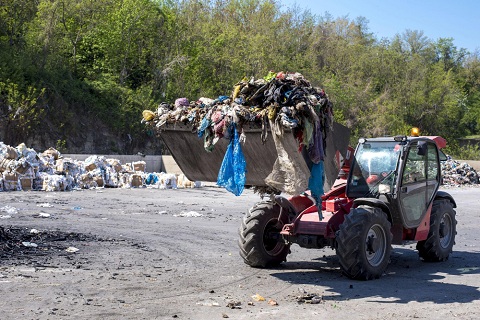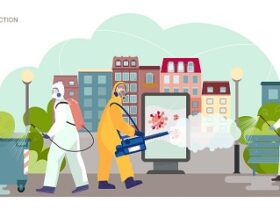The issue of air pollution has garnered significant attention over the past few decades. Among the various sources contributing to this problem, solid waste in landfills plays a critical role. This article delves into the mechanisms through which solid waste in landfills leads to air pollution, highlighting the types of pollutants released, their environmental impact, and potential mitigation strategies.
Decomposition of Organic Waste
Landfills are repositories for a variety of waste types, including a substantial amount of organic waste. When organic waste decomposes, it undergoes a series of biological and chemical processes that produce greenhouse gases.
Anaerobic Decomposition
In the absence of oxygen, anaerobic bacteria break down organic materials, resulting in the production of methane (CH4) and carbon dioxide (CO2). Methane, in particular, is a potent greenhouse gas with a global warming potential approximately 25 times greater than that of carbon dioxide over a 100-year period.
Leachate Formation and Volatile Organic Compounds (VOCs)
Leachate, a liquid that forms as water percolates through the waste, can facilitate the release of volatile organic compounds (VOCs) into the atmosphere. These VOCs can contribute to ground-level ozone formation, a key component of smog, which poses severe health risks to humans.
Non-Organic Waste and Hazardous Emissions
Landfills also contain non-organic waste, such as plastics and electronic waste, which release harmful chemicals upon degradation.
Plastic Degradation
When plastics degrade, they release a range of chemicals, including phthalates and bisphenol A (BPA). These chemicals can volatilize into the air, contributing to airborne toxins that can affect both environmental and human health.
Electronic Waste (E-Waste)
E-waste is particularly concerning due to its content of heavy metals and other hazardous substances. When improperly managed, e-waste can emit lead, mercury, and cadmium into the air, which can cause serious health issues, including respiratory problems and neurological damage.
Methane Emissions and Global Warming
Methane emissions from landfills are a significant contributor to global warming. Landfills are the third-largest source of methane emissions in the United States. Methane’s high global warming potential means that even relatively small emissions can have a substantial impact on climate change.
Methane Capture and Utilization
To mitigate methane emissions, many modern landfills are equipped with methane capture systems. These systems collect methane gas and can either flare it off or convert it into renewable energy. Utilizing methane in this way not only reduces greenhouse gas emissions but also provides a sustainable energy source.
Health Impacts of Air Pollution from Landfills

Air pollution from landfills poses numerous health risks to nearby communities. The inhalation of methane, VOCs, and other toxic emissions can lead to respiratory issues, cardiovascular diseases, and cancer.
Respiratory Diseases
Pollutants like particulate matter (PM) and ground-level ozone can aggravate conditions such as asthma and chronic obstructive pulmonary disease (COPD). Prolonged exposure can reduce lung function and increase the frequency and severity of asthma attacks.
Cardiovascular Problems
Airborne pollutants from landfills are also linked to heart attacks, strokes, and other cardiovascular conditions. Fine particulate matter can penetrate deep into the lungs and enter the bloodstream, leading to systemic inflammation and cardiovascular stress.
Mitigation Strategies
Effective management of landfill emissions requires a multifaceted approach that includes both technological innovations and policy measures.
Improved Waste Management Practices
Implementing better waste management practices, such as composting organic waste and recycling non-organic materials, can significantly reduce the amount of waste that ends up in landfills. This, in turn, minimizes the production of harmful gases and leachate.
Landfill Gas Recovery Systems
Advanced landfill gas recovery systems are essential for capturing and utilizing methane emissions. These systems can be integrated with renewable energy projects, such as converting methane to electricity or using it as a fuel source for vehicles.
Regulatory Measures
Stricter regulations and enforcement are necessary to ensure that landfill operations adhere to environmental standards. Governments should implement policies that incentivize waste reduction, promote recycling, and support the development of sustainable waste management technologies.
Public Awareness and Education
Educating the public about the impacts of landfill emissions and the importance of waste reduction is crucial. Public participation in recycling programs and support for environmentally friendly policies can drive systemic changes in waste management.
FAQs About How Solid Garbage in Landfills Can Result in Air Pollution
Landfills release several gases, including methane, carbon dioxide, volatile organic compounds (VOCs), and hydrogen sulfide.
Methane is a potent greenhouse gas that traps heat in the atmosphere, contributing significantly to global warming.
Air pollution from landfills can cause respiratory issues, cardiovascular problems, and other health concerns such as headaches, dizziness, and nausea.
Innovative technologies include waste-to-energy solutions, bioreactor landfills, and advanced recycling methods.
Individuals can help by reducing waste, recycling, composting, and supporting policies and practices that minimize landfill use and improve waste management.
Conclusion
Solid garbage in landfills is a significant source of air pollution, contributing to greenhouse gas emissions, hazardous chemical releases, and various health problems. By adopting comprehensive waste management strategies, improving landfill technologies, and enforcing stricter regulations, we can mitigate the negative impacts of landfill emissions on air quality and public health. Collective efforts towards sustainable waste management are essential for protecting our environment and ensuring a healthier future for all.












Find Us on Socials